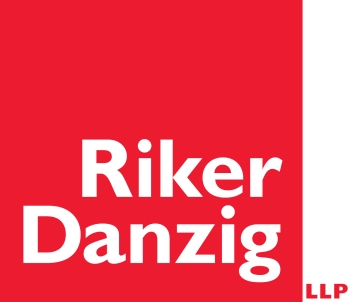The Superior Court of Connecticut, Judicial District of Stamford-Norwalk at Stamford, recently granted summary judgment in favor of a title insurer, finding that the insured was not entitled to defense costs where the underlying lawsuits did not concern matters on which the title insurer had a duty to defend. See Stewart v. Old Republic Nat'l Title Ins. Co., 2021 WL 3832354 (Conn. Super. Ct. Aug. 10, 2021). In 2013 and 2014, the plaintiffs acquired ownership of neighboring properties in Greenwich, Connecticut and obtained owner’s title insurance policies. In 2016, adjacent property owners brought an action against the plaintiffs alleging that the plaintiffs obstructed an easement by extending a lawn, installing a raised drainage system and removing a stone pillar (the “Kennedy Lawsuit”). Without notifying its title insurer, the plaintiffs engaged counsel to defend the lawsuit. Six months later, after the property owners filed a revised Complaint alleging that the plaintiffs did not have exclusive ownership of or exclusive rights to the easement, the plaintiffs notified the title insurer that the lawsuit was pending and that the plaintiffs may have a claim. The title insurer denied coverage and concluded that it had no obligation to defend the lawsuit for a number of reasons, including that the policy did not insure the plaintiffs’ exclusive rights to and ownership of the easement, the plaintiffs did not have exclusive ownership of the easement, the plaintiffs’ conduct was the cause of the lawsuit, and the events at issue occurred after the issuance of the policy.
That same year, the plaintiffs objected to the Town's acquisition of an abandoned African-American cemetery, believed to be on or adjacent to the plaintiffs’ property, and sent a notice of claim to the title insurer, which the title insurer denied. Without notifying the title insurer, the plaintiffs sued the Town seeking a declaratory judgment and to quiet title to the driveway or to acquire title thereto by prescriptive easement or adverse possession (the “Greenwich Lawsuit”). The plaintiffs made a claim to recover their litigation expenses on the Greenwich Lawsuit and the title insurer again disclaimed coverage, noting that it did not approve the expenses and attorney’s fees incurred in initiating and defending the Greenwich Lawsuit as required under the policy. The plaintiffs then brought this action against the title insurer alleging that the title insurer breached the policies by failing to fund its costs to defend the lawsuits, primarily the attorney’s fees incurred, and sought indemnification for the expenses paid in connection with the lawsuits. The title insurer subsequently moved for summary judgment.
The Court granted summary judgment in favor of the title insurer. The Court found that the title insurer properly denied defense costs on both claims. First, the Court found that the use of the term “ownership” in the revised Complaint in the Kennedy Lawsuit did not challenge title to the property but rather the plaintiffs’ right to exclusive use of the easement, and thus, the lawsuit did not concern matters on which the title insurer had a duty to defend. Moreover, the gravamen of the Kennedy Lawsuit was the plaintiffs’ affirmative conduct that occurred after the policy was issued and was therefore excluded from coverage. With regard to the Greenwich Lawsuit, the Court noted that the plaintiffs sued the Town and thus could not be said to have expended funds to defend their title. Moreover, for the Town to acquire the portion of property that contained the cemetery and impair the plaintiffs’ use of the driveway, the Town would have to exercise its police power to take the property by eminent domain, an event that would occur after the issuance of the policy, and therefore subject to exclusions from coverage as a post-issuance event and a governmental taking. Lastly, the Court found that the plaintiffs breached the policy by depriving the title insurer of its contractual right to control the defense, including its right to authorize defense costs, and to select counsel, by the plaintiffs’ failure to provide timely notice of commencement and later settlement of the Greenwich Lawsuit.





